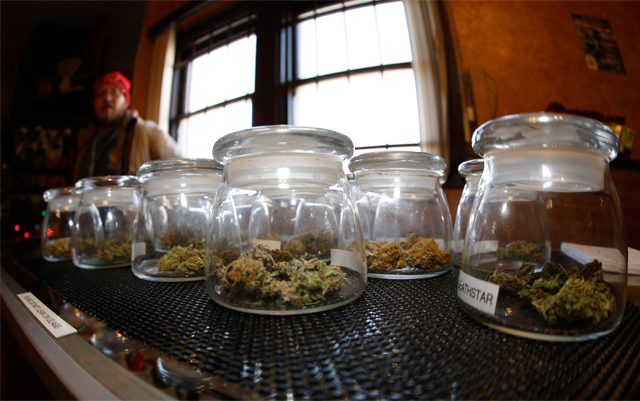Massachusetts has given out the first provisional license to a dispensary in Boston. The dispensary is called Pure Oasis. The owners plan to hire locally and seek to establish themselves as a job creator and networking facility for the cannabis industry.
The Massachusetts Cannabis Control Commission awarded the owners of Pure Oasis their license through the social equity licensing rules in the state. The dispensary is the first to benefit from the Economic Empowerment program and will open in October in the Grove Hall area of Boston. Co-owner Kobie Evans grew up in Dorchester, which has a historically high record of cannabis arrests. Coming from an area that has a high arrest rate is one of the requirements needed to meet the criteria for approval through the Economic Empowerment program. The other requirements are having a previous drug conviction, or being the spouse or child of an individual with a drug conviction, or having lived in an “area of disproportionate impact” for at least five years, and having an income isn’t more than 400 percent of the federal poverty level. Applicants must also have lived in the state of Massachusetts for at least a year.
The program is intended to help entrepreneurs who otherwise wouldn’t be likely to get the opportunity to open a business. Evans and his business partner, co-owner Kevin Hart, still need to obtain a final license and operating certificate. There are a total of 123 social equity licenses actually available in the state, but the process is a difficult one – with the costs of the application process exceeding $50,000. Evans explained part of the process he and his business partner had to go through in order to get the license in an interview with WBUR.
“It would be a lot easier if we had a pile of money to hire a big lobbying firm to set up meetings with mayors, but that’s not the case. Being the little guys makes the process difficult to impossible,” Evans said.
Evans went on to say that politics is the hardest part of obtaining a business license in the state. State law requires businesses to enter into Host Community Agreements, which allows municipalities to collect 3 percent of the total revenue of a business for up to 5 years before the Cannabis Control Commission will even consider awarding a license. Despite the tough licensing process, hopefully the state will see more cases like that of Evans and Hart. They say they plan to hire local people to work at the dispensary, including those who have criminal records, in order to help them get their lives back on track. Their goal is to become a catalyst to inspire other cannabis hopefuls to enter the industry.






